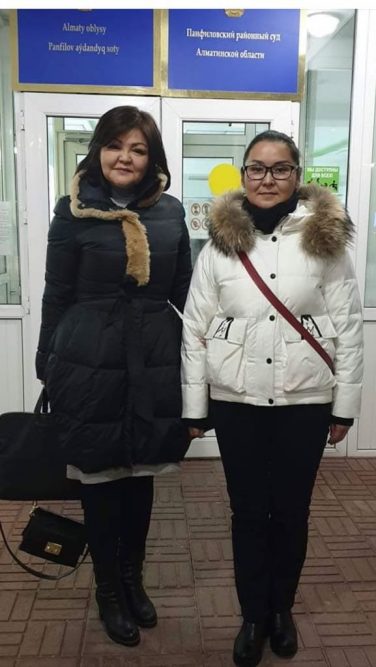The case of Kaisha Akan is a victory for freedom and for those who support the cause of asylum seekers escaping detention in Xinjiang’s camps.

by Massimo Introvigne
Bitter Winter reports often about ethnic Kazakhs Chinese citizens who practice their Muslim religion in Xinjiang. Their situation is not different from the Uyghurs’. Thousands of them are detained in the dreaded transformation through education camps.
We also report on the situation of those who manage to escape to Kazakhstan and seek asylum there. Chinese pressure often makes their situation difficult, notwithstanding the efforts of brave Kazakh lawyers such as Ayman Umarova and Lyazzat Akhatova. The most famous case concerned a young mother, Sayragul Sauytbay, whose deportation back to China was stopped thanks to the efforts of Umarova. Sauytbay, however, did not feel safe in Kazakhstan and eventually moved to Sweden.
We recently mentioned the case of two young men, Kaster Musakhan and Murager Alimuly, detained in Kazakhstan for crossing the border illegally and at risk of being deported back to China. Their case was reported by several international media and a number of members of the Lithuanian and European Parliament wrote a letter in their favor to the Kazakh authorities after a conference in Vilnius where Bitter Winter and others denounced their situation.
International pressure cannot balance the pressure of China, a key economic and political partner of Kazakhstan, yet it may achieve some results. On December 23, Judge Elmira Asubaeva of the Court of Zharkent, a town in south-eastern Kazakhstan, handed a suspended 6-months prison sentence to an ethnic Kazakh woman who had also illegally crossed the border from China, Kaisha Aqan, and allowed her to stay in Kazakhstan.
One element who weighed on the decision is that Aqan’s husband is a Kazakh national. On the other hand, Aqan has not escaped a transformation through education camp. She escaped China when she received believable information that she would soon be detained in a camp. The Zharkent decision, thus, supports the position advocated by Bitter Winter that not only those who spent time in jail or detention camps in China should be granted asylum, but also those lucky enough to escape before being detained.
The situation of refugees from China remains difficult in Kazakhstan, but the decision about Kaisha Aqan brings a ray of hope. The international organizations, politicians, and NGOs should continue to monitor closely the attitude of the Kazakh authorities towards asylum seekers from Xinjiang. The international efforts are not without results.
Go to Source
Author: Massimo Introvigne





